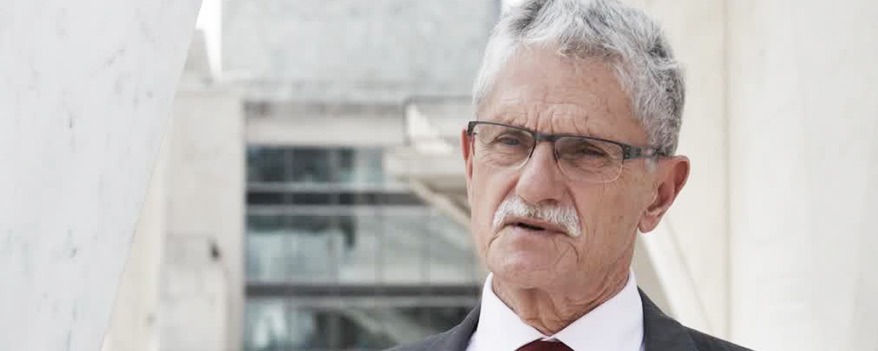Leaders of nuclear-armed States should use the International Day for the Total Elimination of Nuclear Weapons to commence a process for the controlled elimination of nuclear weapons, says UN General Assembly President Mogens Lykketoft, in a video interview with UNFOLD ZERO.
Lykketoft, a former Foreign Minister of Denmark and a long-time member of Parliamentarians for Nuclear Non-proliferation and Disarmament, will preside over the UN General Assembly for the 70th year of its operations, a pivotal time for the organisation and for global peace and disarmament.
‘We can celebrate the 26th September with the good news that we now have the Iran nuclear agreement,’ says Lykketoft. ‘That is one important step in preventing the proliferation of nuclear weapons.’
‘But on Sep 26, what I would really like to see is that the commitment that President Obama made in his Prague speech some years ago – to embark on the road to the total elimination of nuclear weapons – would be an effort supported by each and every one of the nuclear powers.’
Lykketoft called for immediate action to reduce nuclear tensions and take nuclear weapons arsenals off alert status. ‘The risk of unintended or unwanted use of nuclear weapons is too high. Mechanisms must be developed to reduce these risks.’
Lykketoft commended the movie ‘The Man Who Saved the World‘ as an important education tool to remind public and governments that this danger of nuclear war by accident is still very real. ‘An incident like that in 1983 could happen again, and we cannot be sure that another courageous man like Stanislav Petrov will be at the screen and in control at that moment.’
‘I really hope that those that are negotiating on disarmament – indeed all those involved in international peace and security – will have the opportunity to see the film.’
In the film, Stanislav Petrov travels to the US nearly 30 years after 1983 incident – and notes the similar nuclear threat postures, and tensions between Russia and the West as in 1983. Lykketoft says how valuable the movie is in making these connections and inspiring people to act now. ‘Grassroots efforts to put pressure on governments to re-engage in nuclear disarmament – bilateral and multilateral – are as vital now as when the UN was established 70 years ago.’
Lykketoft also calls for greater connection between the three core pillars of the UN – development, human rights and peace & security. In particular, he calls on the more powerful countries to take the lead by reducing military spending, resolving conflicts peacefully and contributing more to development.
He notes that the United Nations General Assembly is a key institution for facilitating progress on these pillars. ‘The General Assembly is the democratic, all-inclusive body of the United Nations. It provides moral authority and moral pressure on those who are the big military spenders to live up to their obligations to support sustainable development and reduce spending on an incredibly costly armament race.’
Mr Lykketoft will preside over an informal session of the UN General Assembly on Sep 29 to commemorate the International Day for the Total Elimination of Nuclear Weapons.

